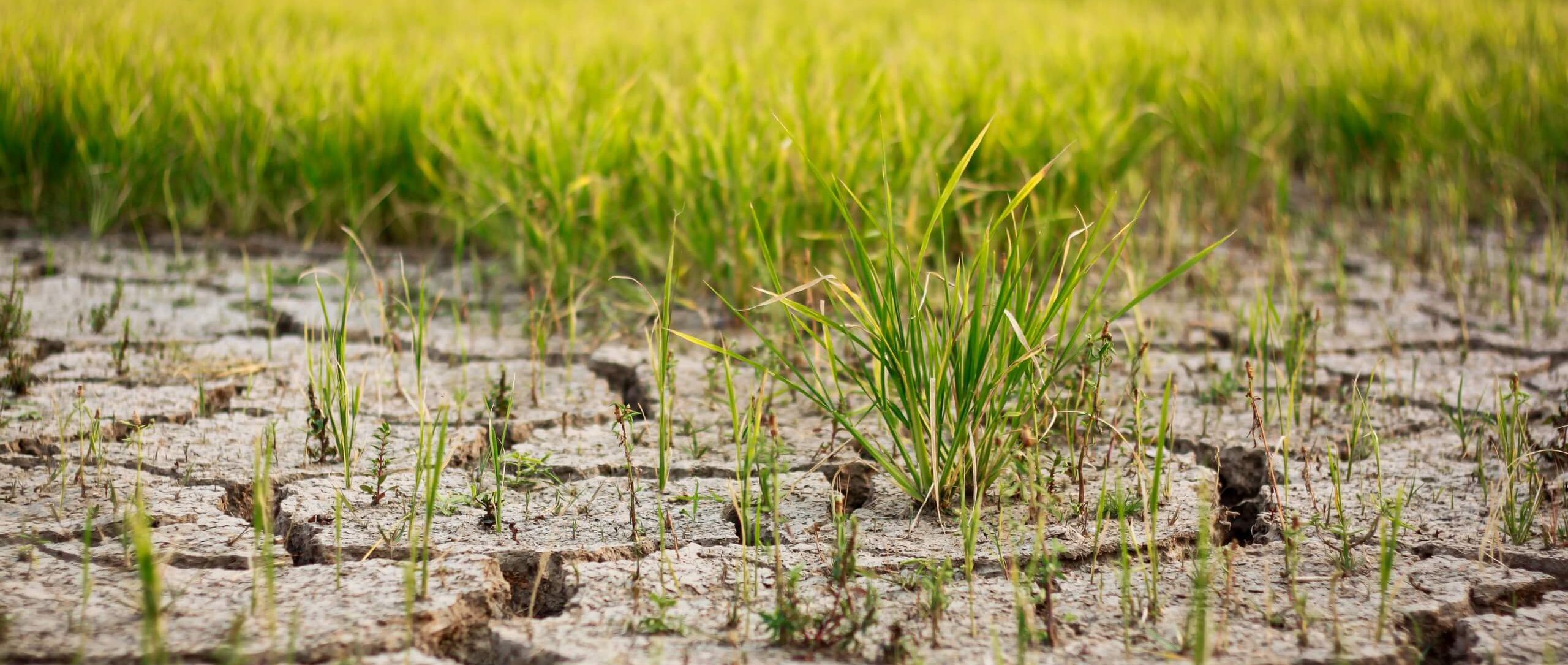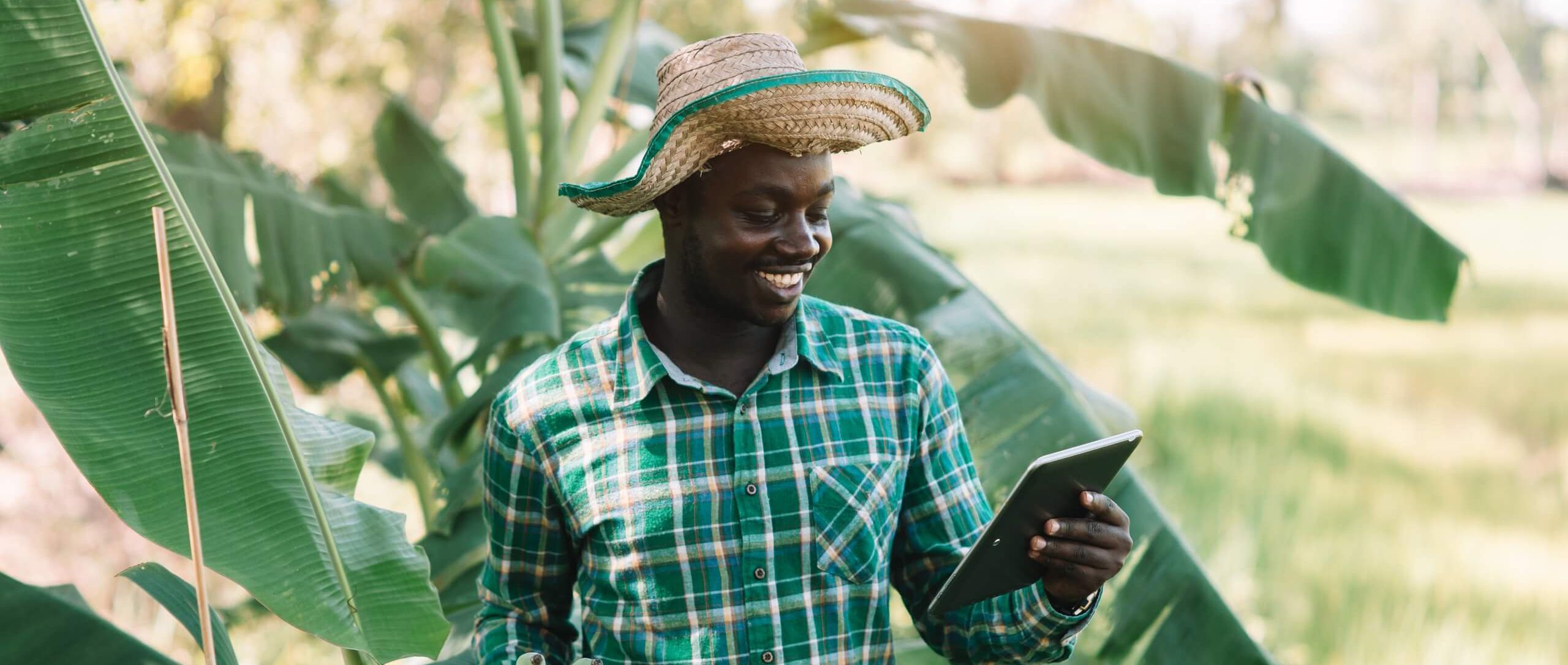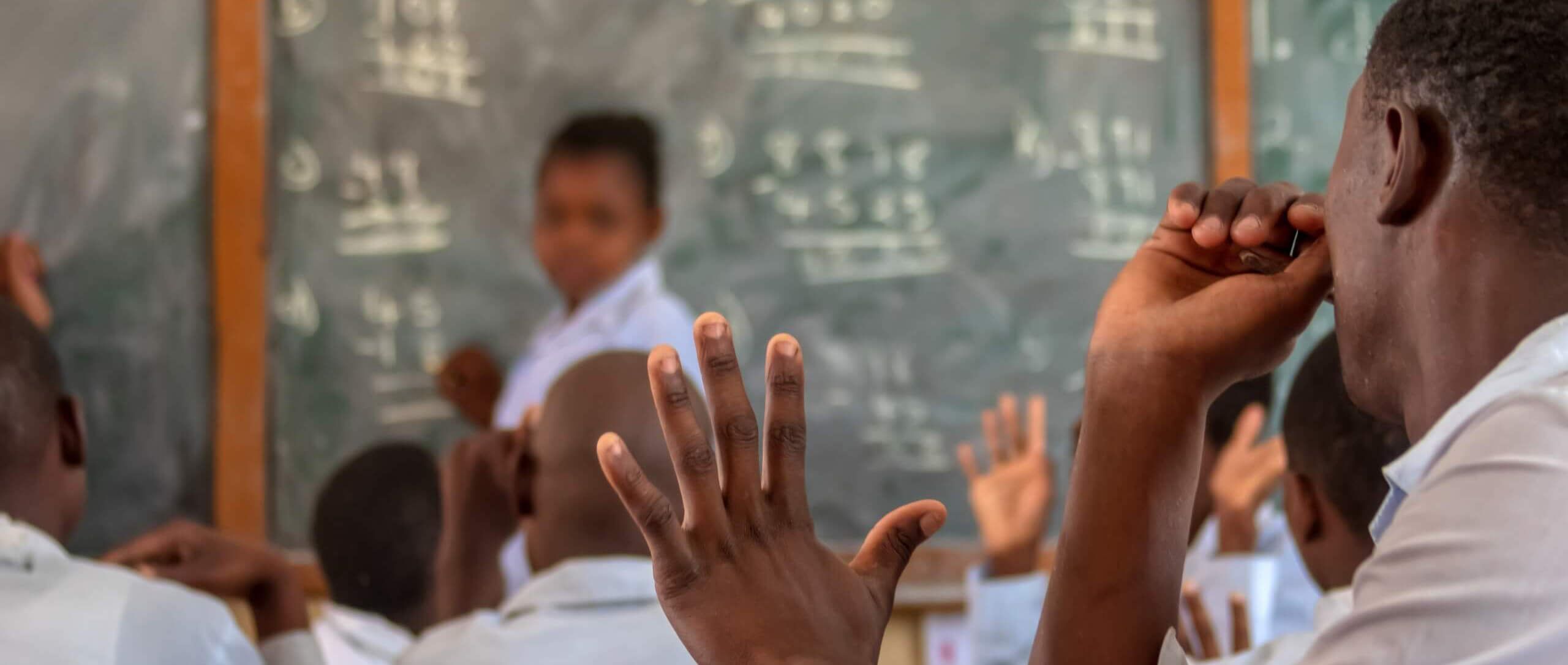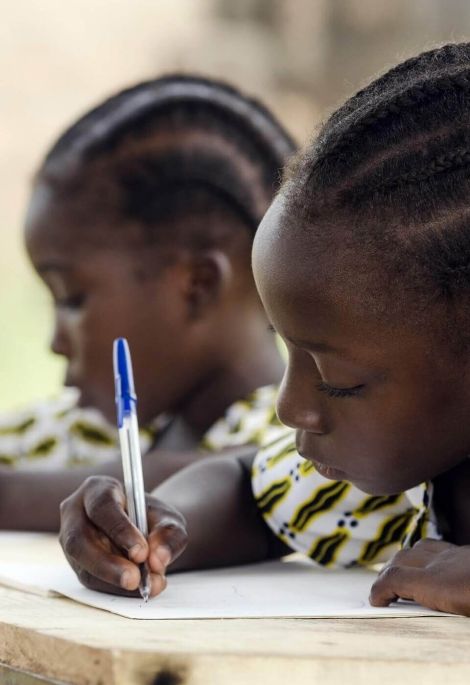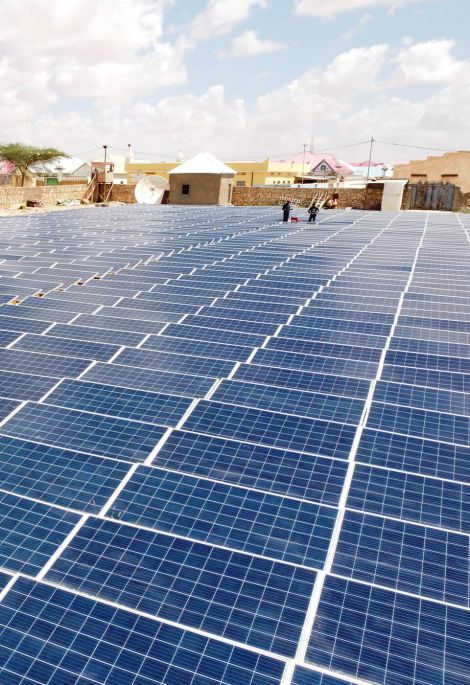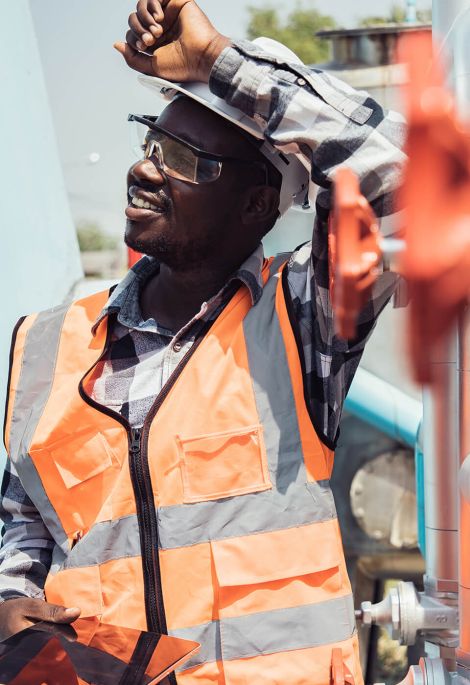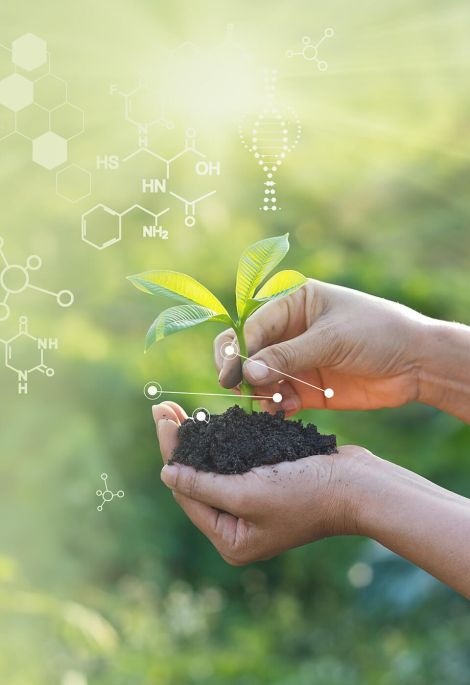Asjeba Planting Your Future philosophy is based on the Sustainable Development Goals to achieve sustainable soil management while creating an environment where local communities achieve sustainable well-being and elevated livelihood for themselves and their children and future generations to come.
Goals
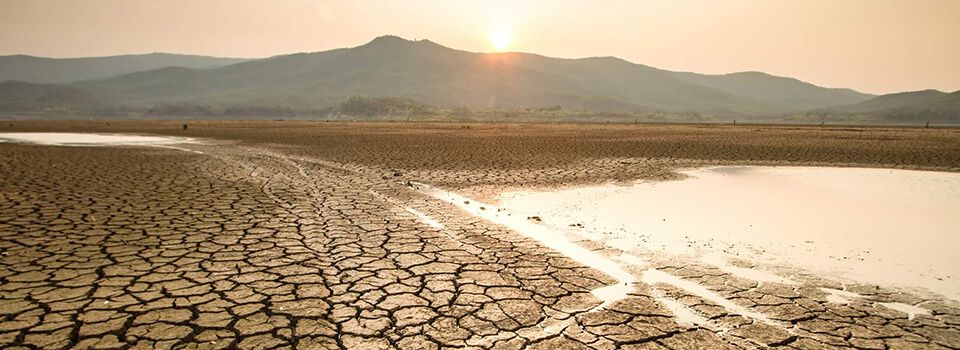
The foundation intends to lease infertile degraded land in countries of the Global South on a long-term basis and to restore them through skilful planting with drought-resistant indigenous and assimilated productive crops according to Agroforestry, regenerative agriculture and syntropic cultivation principles. This then leads to improving soil health (living soils), preventing floods, absorbing at least twenty (20) million tons of CO2 from the atmosphere per project over a period of twenty years, better nutrition for the local population and elevating living standards with a positive effect of reducing climate-related migration.
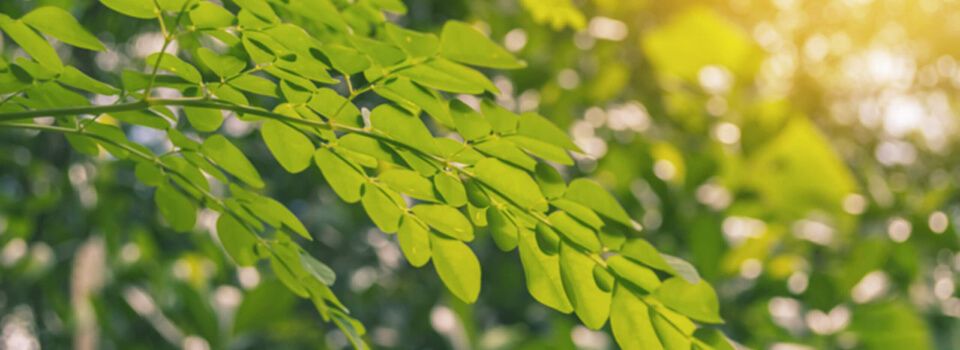
The soil which becomes fertile again is cultivated with productive and food crops. At the same time, infrastructure is being built to generate income from the use of the restored land and thus promote the prosperity of the local population. The added value remains with the local community through the construction of further local processing plants aiming to keep added value in the communities. Special products with certified origin and local traditional character branding are also a goal. This will alleviate local communities from poverty and reverse climate migration resulting in functional and prospering local communities.
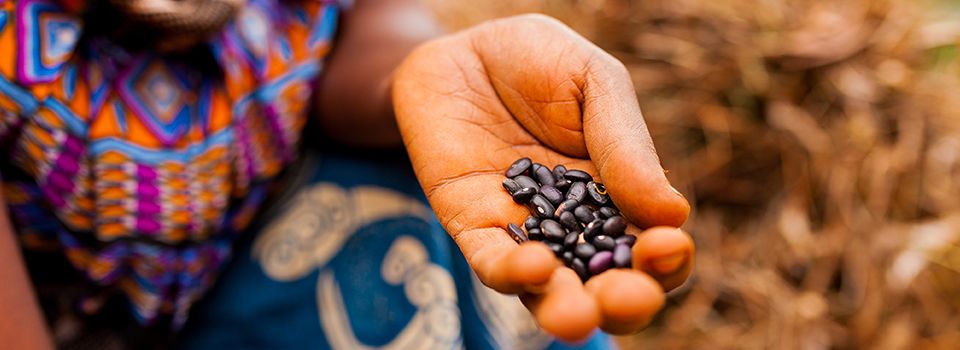
The income generated from the sale of the goods produced is led back into the respective project in a loop to finance further infrastructure and used to create stable livelihoods for the local population. Upon completion of the project, land and operations will be transferred to a local foundation owned by the local communities.
The path to our vision
-
SECURE DEGRADED/UNUSED LAND
First goal is to secure sufficient degraded and/of unproductive land from the landowners (tribes, church, government, ….) Signing of emphyteutic land lease agreements for a period of minimum 20 years is the key for the start of the agroforestry project. -
CONSTRUCTION OF INFRASTRUCTURE AND LANDSCAPING
THE BASIS FOR FUNCTIONALITYA masterplan for construction of basic infrastructure and landscaping is essential for the success of the agroforestry project. Out of the accumulated profits we will constantly upgrade and optimize these items in future. -
PROCUREMENT OF WORKING MATERIAL
PLANTS AND MACHINESLand is secured and basic infrastructure in place. Purchase of seed material, construction of nursery mobile assets, like heavy working machines and vehicles has priority now.
-
EDUCATION OF LOCAL EMPLOYEES
IMPLEMENTATION OF THE SWISS APPRENTICESHIP MODELWe will integrate the Swiss apprenticeship model, slightly modified - 4 days’ work on the field under supervision of a trained person, 2 days a week to school to learn the basics of agriculture – to enable the young people to get experience that will be certified. This way they can show their proven praxis. -
START OF PLANTING
After we have started with soil improve methods (collecting water with various technical support and grass roots concepts) in cooperation with local institutions, women and youth initiatives, we will start with our permaculture concept. That way the soil will renature itself automatically within a certain period.
Integration of the dual vocational training system
In order to achieve the improvement of the livelihood of the local communities, people need a professional education on a high-quality level. For this purpose, the Swiss dual vocational training system will be implemented, which provides for young people and adults to receive basic practical training in the field on the one hand and attend a vocational school on the other. The necessary training of master trainers and competent instructors is carried out in cooperation with local partners who are already integrated and recognised in the local structures and culture.
Economic and social prospects
Whether people see a future for themselves and their families in their own country depends largely on local prospects. The projects of "Asjeba Planting your Future" counteract a Climate change caused migration by building adaptable social and economic systems in the partner communities.
- Quality education system
- Provision of improved nutrition from the productive forests created on the restored soils
- Long-term jobs with fair working conditions
- Healthcare/medical care
- Building a climate-friendly economy
- Political influence
Measurability
The effective impact of the projects on the environment is measured and evaluated by international experts. The valuable knowledge about the positive effects of the projects is collected, evaluated and optimized. The data is made transparently visible on a website under the foundation's main site for each project. The scalability of the achieved sustainable effect is of central importance for current and future projects.
We aspire independent certifications for each project regarding the Organic nature of the project, Freedom from any chemicals in the project, CO2 reduction and any other needed and useful verification as well as certification.
Sustainable Development Goals

No Poverty
No Poverty
225,000 people per site raised from poverty.
- Per site 225,000 people alleviated from poverty: 15,000 jobs, 15,000 families, 15 persons indirectly per job. living wage. Outgrower program spreads prosperity among smallholder farmers in the region
- Pension scheme, employer contributions
- Affordable housing
- Increased employability through employee education, work/study programme.
- Leveraging investment and government services, developing community programmes
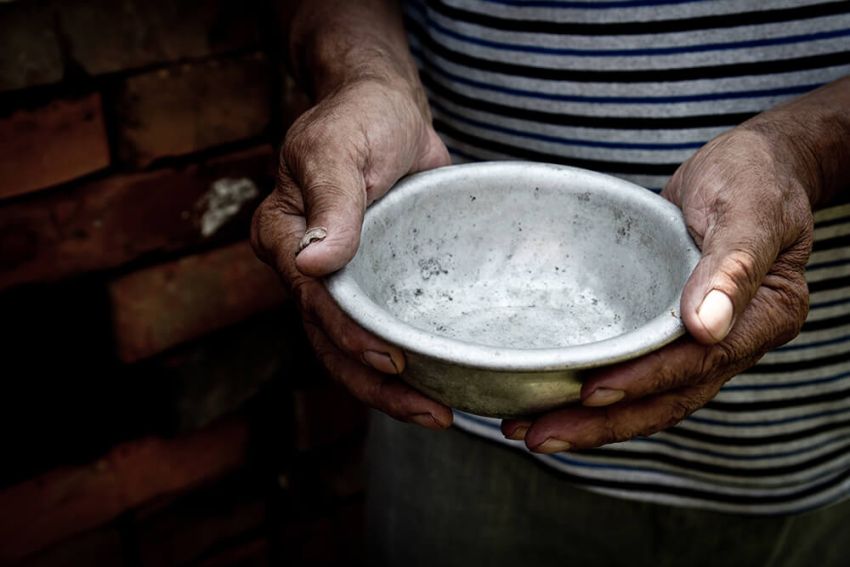
Zero hunger
Zero hunger
food security, on site and off
- Agricultural knowledge transfer, soil improvement, lessening dependence on expensive inputs, broadening to outgrowers,
- Grow, process moringa, high nutrient food , other foods for regional markets,
- Allotments for food security and local market development,
- Maintain commons for grazing,
- Maintain pastoralists income,
- Provide nutrition information,
- Facilitate country nutrition campaigns.
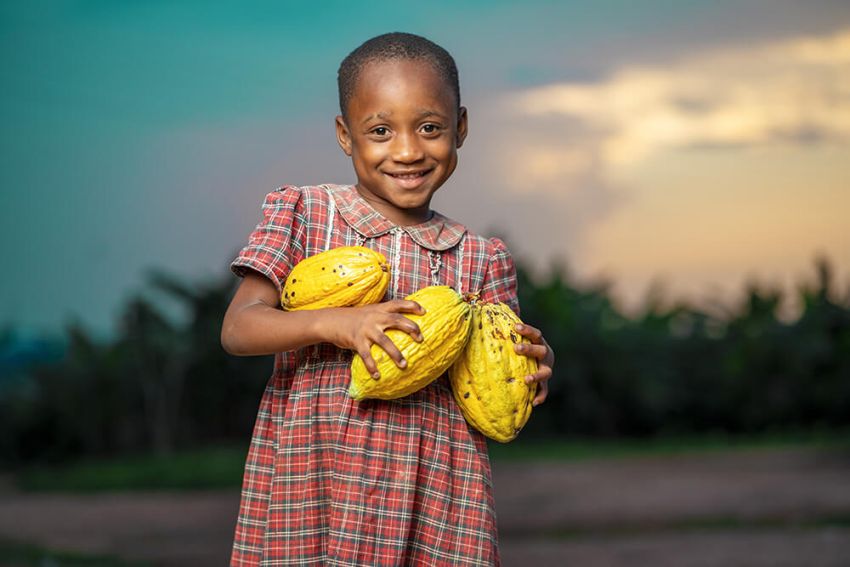
Good health and well being
Good health and well being
Healthy people healthy project, community life
- Model communities that foster well-being
- Remove harmful co2 by growing forests
- Develop affordable daily products for mother and child health, family health
- Provide clean water and sanitation
- Facilitate vaccination and health info,
- Support public health messages
- Support onsite clinics, enter partnerships against infectious diseases
- Support women and girls to enter understaffed health professions
- Improve health, and reduce indoor cooking pollution with ICS cookers
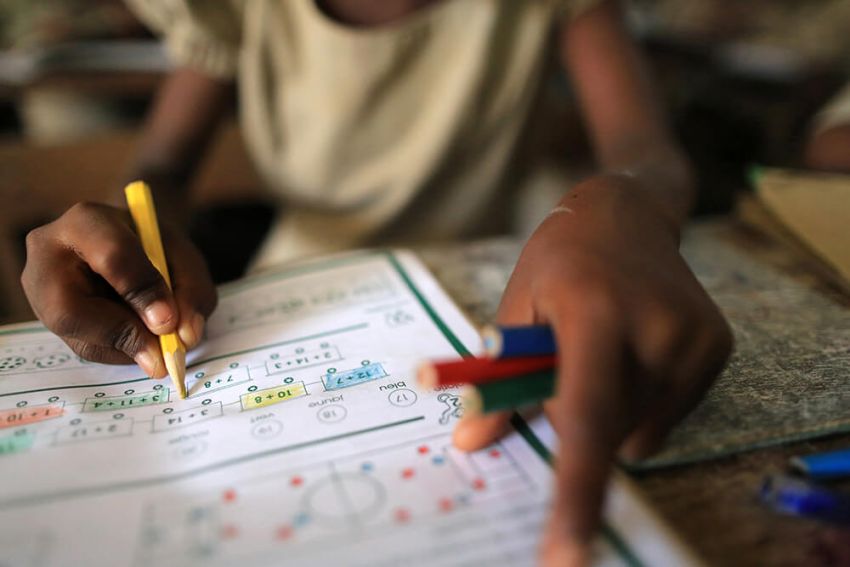
Quality Education
Quality Education
The next generation for Asjeba
- Leverage investment for education services by government
- Work-study certification program for all on site and outgrower personnel
- Management training programme
- Leadership development programmes, child and adult
- Ensure school buildings and utilities, teacher housing
- Partnerships for computers and books
- Child education, scholarships
- Sports fields and equipment

Gender equality
Gender equality
Growing female talent
- Women and girls equal access to education, leadership and management programs
- Equal opportunity employment
- Gender effect analysis of each site and product
- Support women’s entrepreneurship in the marketplace
- Powerful girls program
- Women’s health program at on-site clinics
- Access to childcare
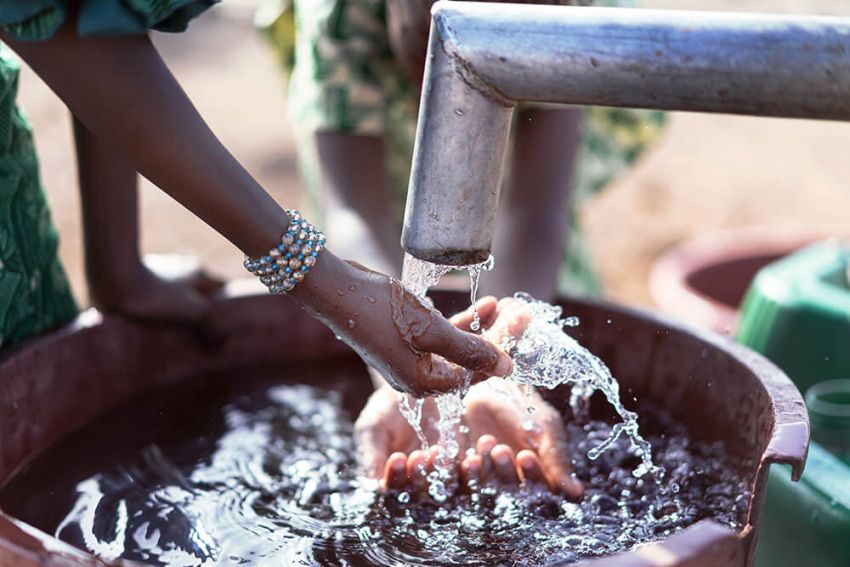
Clean water and sanitation
Clean water and sanitation
Water is wealth
- Running water and sanitation in all buildings and rest areas, less absence through illness, informed population
- Growin method to raise the water table, less cost of irrigation
- Water catchment basins for rainwater, drinking water security
- Conservation farming, fewer runoffs, reduced flood and drought, higher productivity
- Less inputs, less contamination, less cost
- Environmentally friendly water treatment, less cost of energy
- Leverage buying power to make water filters affordable to outgrowers
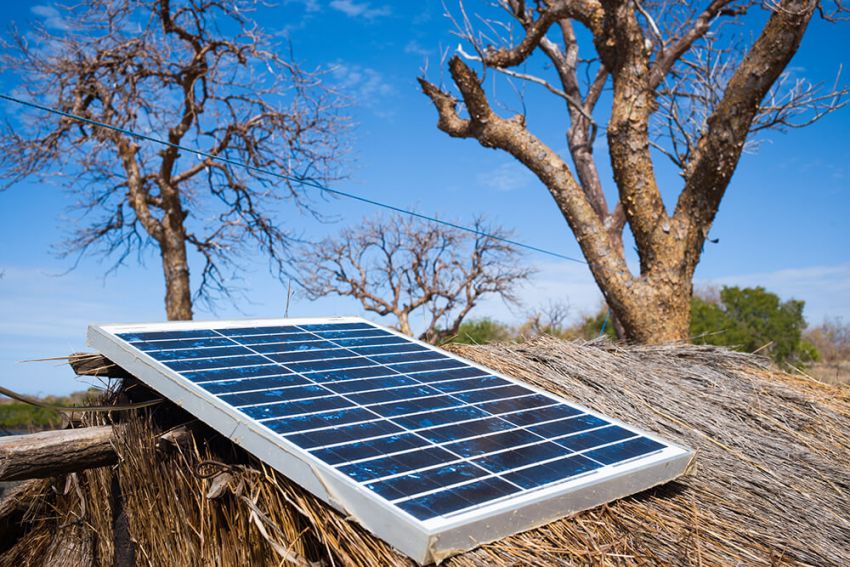
Affordable and clean energy
Affordable and clean energy
Energy crops that enable food crops and regenerate degraded land
- Large scale production of sustainable affordable bio based fuel
- Financing outgrowers alternative energy applications
- Buildings, homes, with solar and wind on site and in production facilities
- Reliable grid on site
- Test and manufacture alternative cookers
- Eliminate dependence on imported fuel
- Promote Energy efficiency
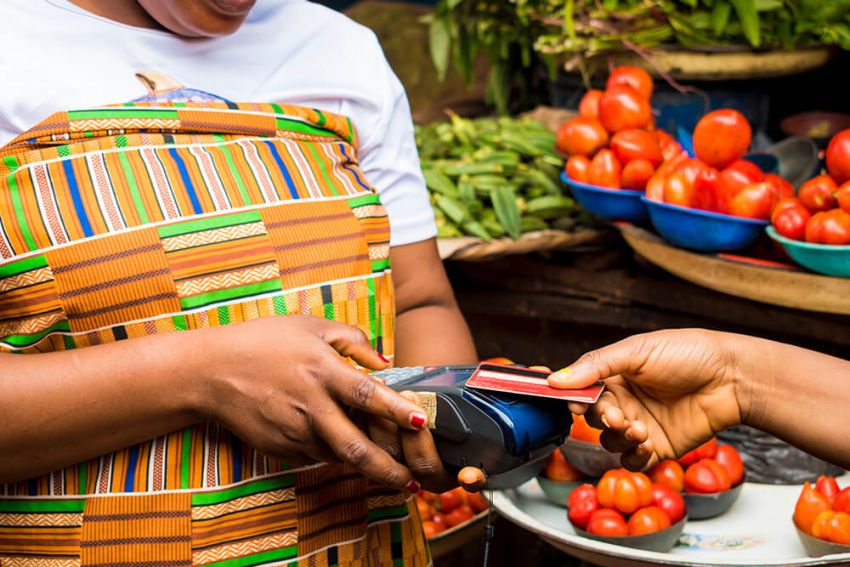
Decent work and economic growth
Decent work and economic growth
Spreading prosperity, site for site
- Decent formal work, grows economy with no harm to the environment
- Decent work for outgrowers spreads prosperity
- Spinoff jobs and enterprises serving working population of 15,000 per project
- Investing in permanent infrastructure for economic growth
- Infrastructure stays in place after lease ends

Industry, innovation and infrastructure
Industry, innovation and infrastructure
Leaping ahead to the 21st century
- Investment in full physical and digital infrastructure for underserved populations
- State of the art technology and infrastructure: wifi, telecom, security, IOT.
- Investment in product innovation and development
- Industrial processing of food and fuel, capturing added value, keeping added value in developing regions
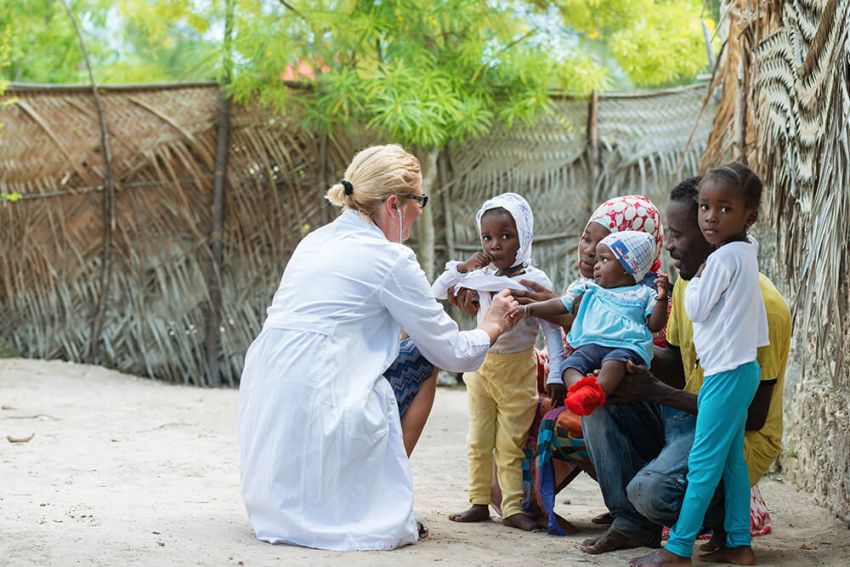
Reduced inequalities
Reduced inequalities
A balanced workforce is a stronger workforce
- Handicapped access and equal opportunity
- Financial education across gender and social status
- Assistance with forms and applications
- Equal access to health care, work
- Facilities for working mothers
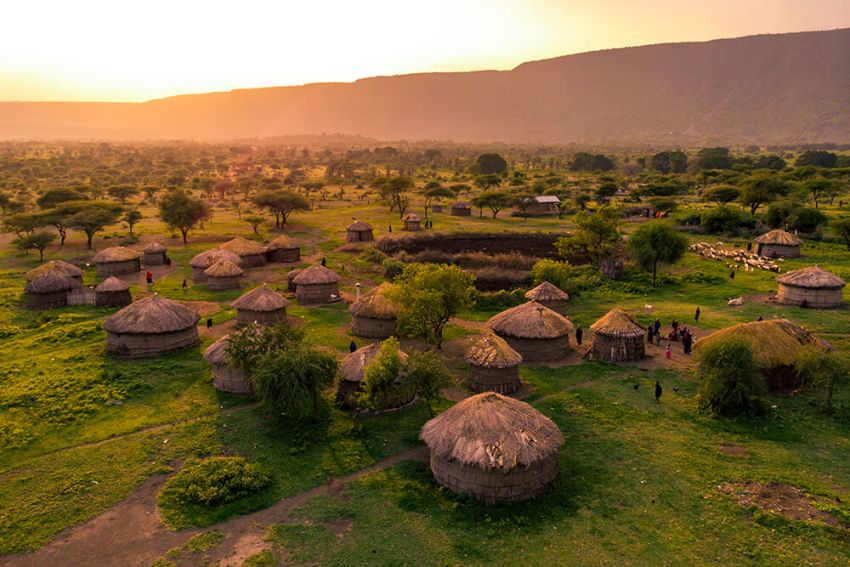
Sustainable cities and communities
Sustainable cities and communities
Attracting talent back to the countryside
- Asjeba plans to build modern ECO settlements according to Building Energy Efficiency Principles and Plus Energy technologies for at least every 2000 ha, homes for 200 families
- Planned town, villages with green spaces, gathering places, cultural spaces, service infrastructure, play areas
- Affordable and fully sustainable housing and energy
- Use of modern and sustainable building materials,
- Safety and security features – public lighting, traffic and mobility, neighbour alert
- Marketplace facilities, shops
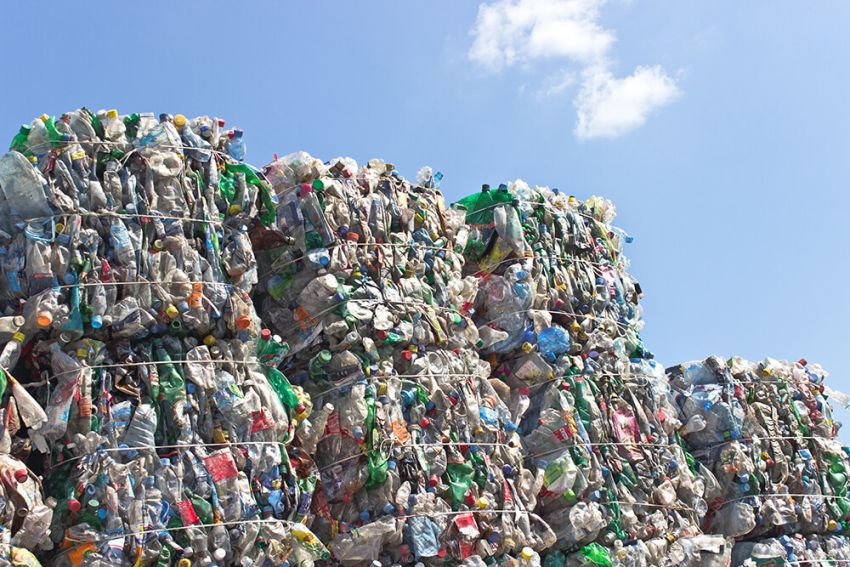
Responsible consumption and production
Responsible consumption and production
Good for the markets, good for health and the environment.
- Reduce fossil fuel consumption through replacement with biofuel
- Adapt vehicles to biofuel
- Wastewater processing, no pollution of lakes and streams
- Sustainably produced organic feedstock and products
- Implement the 5R principles Refuse, Reduce, Reuse, Repurpose and Recycle to achieve Circular Economy principles applied

Climate action
Climate action
A better climate increases our productivity
- By its sheer scale, Asjeba expects to change the micro climate on its sites and in the surrounding area in which it operates: more rain, less drought, more crops.
- The Asjeba proof of concept raised the water table and fostered growth of dense wood, absorbing CO2.
- Asjeba expects to be able to generate Carbon offsets
- Growin system to be used on all sites, improving climate across regions
- The project results in healthy living soil with functional ecosystems and all its benefits in absorbing CO2, holding water, improving microclimate, elevating groundwater tables, cleaning groundwater, providing nutritious crops and allowing the recovery of biodiversity

Life below water
Life below water
Life below water for good business
- Non- polluting production means no harmful runoff and seepage that finds its way through waterways to the sea.
- Producing bioplastics and cosmetics that are not harmful to life in water
- Wastewater treatment and waste treatment saves life in the sea
- Using oil plant waste to raise worms for fish farming on site, sparing life below water
- Restoration of former streams, ponds and lakes will increase Aquatic biodiversity and restore fishing grounds

Life on land
Life on land
Reducing impact on fauna of large- scale planting
- Wildlife corridors through plantations, tall grasses planted, watering holes built.
- Biodiverse planting, 3 tree varieties, 1 shrub, intercropping with food crops, improving life in the canopy
- Staggered planting and staggered timber harvesting at end of productive life of trees
- Apiaries –beekeeping and honey production,
- Pest control using natural enemies
- Organic certification
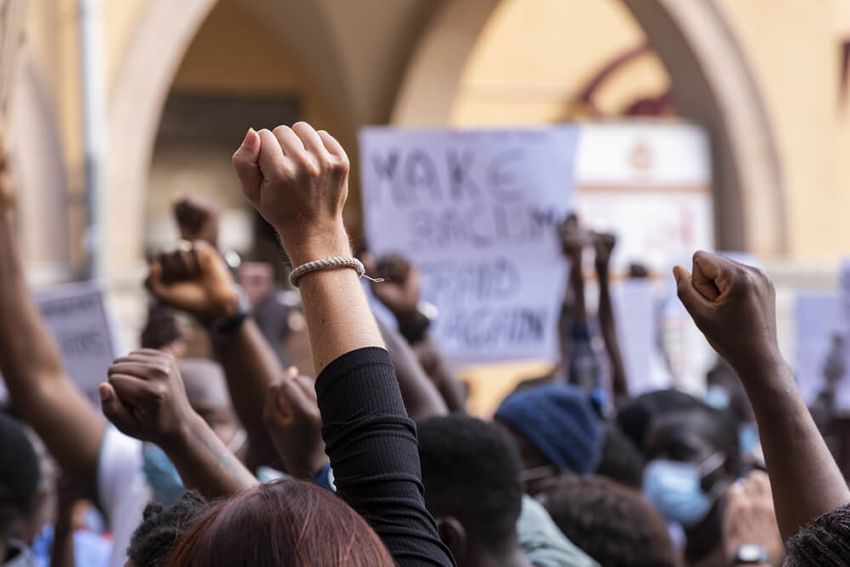
Peace, justice and strong institutions
Peace, justice and strong institutions
Good for business
- Signee of OECD anti corruption declaration
- Building an inclusive community, conducive to peace
- Engaging with government on enabling conditions for investment including peace and justice
- Inclusion of pastoralists to restore peace and exploit synergistic potentials between pastoral and agricultural uses

Partnerships for the goals
Partnerships for the goals
Better together
- Asjeba plans to become a partner in the German marshall plan for Africa
- Asjeba has signed the OECD declaration for multinationals
- Asjeba is member of the UN Global Compact
- Asjeba is member of the Vatican Laudato Si Action Platform to Restore our Balance with Nature
- Asjeba is partnering with any international organisation in order to achieve its goals

